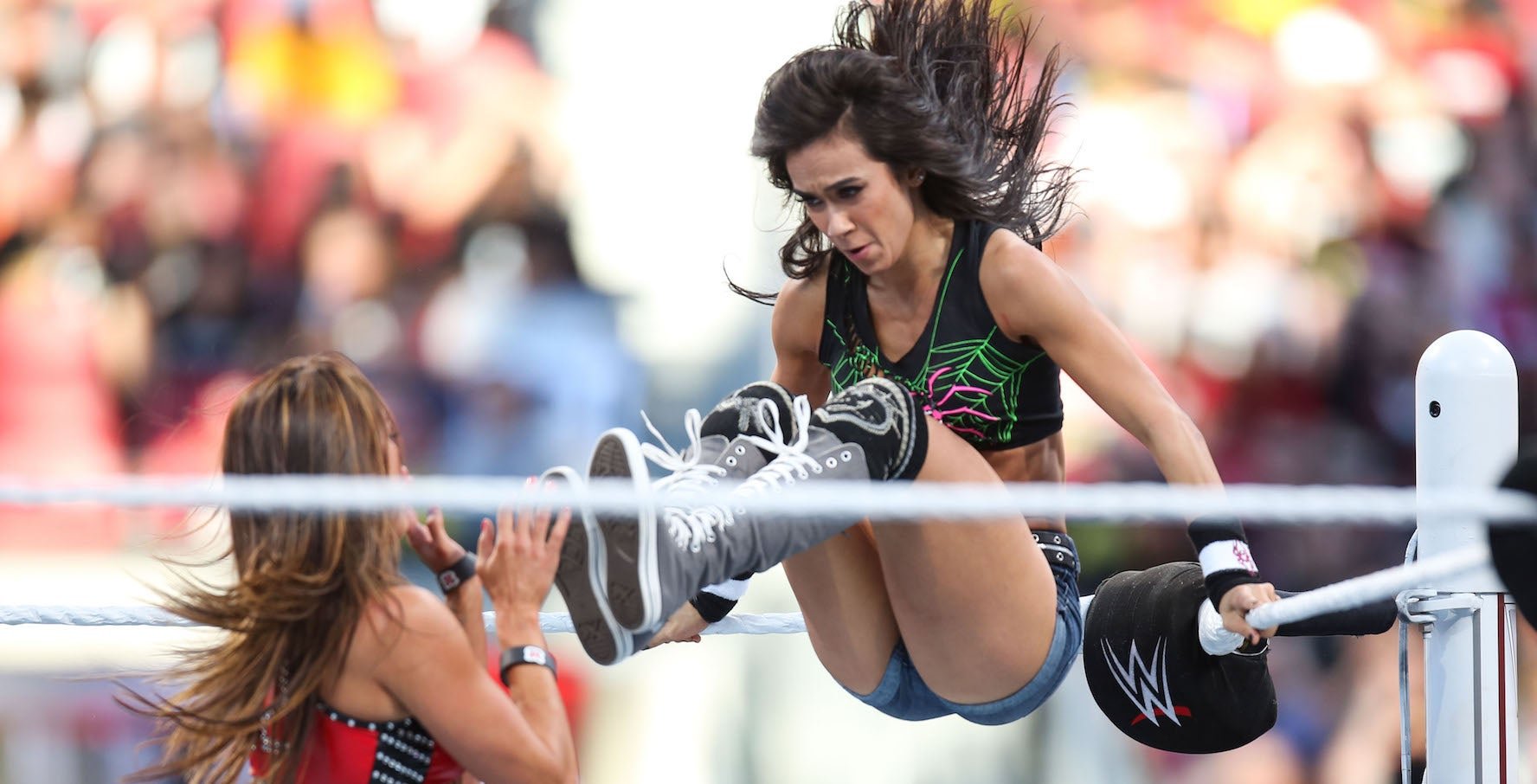A lesson in gender equality from the world of pro wrestling
For a long time, WWE—the world’s foremost pro wrestling organization—called male wrestlers like The Rock, Hulk Hogan, and Seth Rollins “superstars” and its females “divas.” It embodied the split between the two—the men came to wrestle and the women just had to look good.


For a long time, WWE—the world’s foremost pro wrestling organization—called male wrestlers like The Rock, Hulk Hogan, and Seth Rollins “superstars” and its females “divas.” It embodied the split between the two—the men came to wrestle and the women just had to look good.
That all changed during WrestleMania on Sunday (April 3), when WWE Hall of Famer Lita revealed the company’s first ever WWE Women’s Championship belt, which looks the same as the male WWE World Heavyweight Championship belt, and a subtle name change.
“They are so much more than divas in this ring today,” Lita told the crowd. “They are all WWE superstars.” Both players and fans warmly embraced the move.
In an op-ed on The Players Tribune, Stephanie McMahon, an on-screen villain and real-life member of the McMahon dynasty that has dominated wrestling, describes the the new belt—and the new label for its holders—as a “redefining moment” for WWE. She wrote:
This title belt represents the pinnacle of achievement in pro wrestling—and shows that in WWE, it isn’t about gender, race or ethnicity. It is simply about being the best at what you do.
Last year, McMahon called for a revolution for women in her sport, explicitly linking WWE’s female wrestlers with the US soccer team winning the women’s World Cup, Ronda Rousey being the biggest name in the UFC, and Serena Williams’s domination of tennis. It was called the “Divas Revolution,” a name that eight months later has already outlived its usefulness.
As wrestling writer David Shoemaker wrote after McMahon made her announcement:
Luckily for WWE, women’s wrestling was already undergoing a sort of renaissance right under its nose. On NXT, WWE’s developmental show, Paige and Emma and a small army of women were redefining what it meant to be a female wrestler.
If WWE had once been too quick to paint its female performers as eye candy, this new generation was defiant and committed to being part of the main show. They weren’t reactionary, they were simply legitimate. They were fully formed pro wrestlers.
Stephanie McMahon has gone on to introduce more female characters in more developed storylines, who fight in competitive matches and steal the show constantly. Indeed, CBS Sports described the Women’s Championship triple-threat match between Charlotte, Becky Lynch, and Sasha Banks as “the match of the night.”
It makes sense from a financial point of view as well. WWE is trying to grow its business through its own online subscription network (paywall) and the growing audience of young (female and male) fans who are attracted by the exploits of Rousey and the US soccer team might also be enthralled by the exploits of its newest superstars. Especially as its male stars keep succumbing to injuries and concussions.
Who would have thought a lesson in feminism would come from an organization that once held bra and panties matches, where the loser was stripped to their underwear?